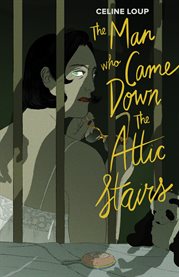Review by Booklist Review
Things That Helped may sound like the title of a self-help book, but a self-help book this is not. Rather, Friedmann's book is a quiet study of the things pho, lipstick, weaving, and more that helped her connect to the world as postpartum depression was breaking her down. She intertwines personal narrative with theory to build out a better understanding of her illness. For example, in a chapter on the music of Anohni, the transgender lead singer of the band Antony and the Johnsons, Friedmann writes also about Hippocrates, hysteria, and French feminism to make sense of her feelings of grief and the grotty parts of motherhood that nobody dares discuss. At one point she shamefully admits envy for women suffering from more familiar illnesses like anorexia and bulimia because they have been legitimated and recognized. By carefully and deliberately describing the pain, dissociation, discomfort, alienation, and other forms of havoc she experienced after birthing her son, Friedmann affirms and illuminates the physical, psychological, and political features of postpartum depression.--Taft, Maggie Copyright 2018 Booklist
From Booklist, Copyright (c) American Library Association. Used with permission.
Review by Publisher's Weekly Review
Australian writer Friedmann makes her debut with this uneven collection of essays cobbled together under the theme of postpartum depression, though few of them really explore this issue. Many of the selections instead dwell on Friedmann's experiences in the years before her son's birth or hold forth on social justice and psychological theory, only barely referencing her child or her illness, giving the impression less of an unconventional approach to memoir than of difficulty finding enough essays to fill a book. The strongest pieces, however, are also those that directly deal with motherhood and depression. "Maribyrnong" describes in powerful sensory detail the betrayals of the body and mind that postpartum depression can bring. "Red Lips," the collection's standout, and "Center Stage, Five Dances, and Other Dance On-Screen" lyrically narrate how a makeup ritual and bingeing on dance movies, respectively, helped Friedmann regain ownership of her body after a traumatic Caesarean section and the ensuing physical and mental pain. By comparison, her essays on artistic struggles, grief, white privilege, violence against women, and marital difficulties lack insight and urgency. Too often, Friedmann misses an opportunity to reveal the evolution of her love for her son-and herself. (Apr.) © Copyright PWxyz, LLC. All rights reserved.
(c) Copyright PWxyz, LLC. All rights reserved
Review by Kirkus Book Review
A writer with a history of depression and anxiety plunges deeper into the abyss following the birth of her son.This memoir, structured as a series of interlinked essays, begins with Friedmann at a river, intending, at least in her mind, to drown herself; it ends with her return to a river, her son a little older, her mind a little clearer, and her attitude sunnier. "With the aid of medication and self-care, I was learning to forge new neural pathways," she writes. The rest of the book is devoted to other things that helped, including a strong, supportive marriage with a loving husband; the music of Antony and the Johnsons and then Anohni, the woman whom Antony has become; the feminist criticism of Siri Hustvedt and others; the inspiration Friedmann received from dance and the movies she watched repeatedly; and the recognition that she was not alone and that what she was experiencing had been experienced and survived by others, many of whom lacked the resources she enjoyed. When she is thinking more clearly, the author offers acute analysis, blurring distinctions that are too common and simple: "Illness and health, movement and inertia; they are not dialectically opposed, but constantly approaching and retreating from one another, overlaying each other, coexisting." Yet in the depths of her depression, the author felt that she had lost her grip on the lifeline of language, that motherhood has subsumed her, and that she would be incapable of resuming her roles as a writer and editor or balancing her own professional ambitions against her husband's. She never succumbs to sentimentality in these pages even when it's obvious how much she loves (or has learned to love) her son and how fortunate she feels for all that she has.Well-rendered essays that make readers think and feel deeply. Copyright Kirkus Reviews, used with permission.
Copyright (c) Kirkus Reviews, used with permission.

